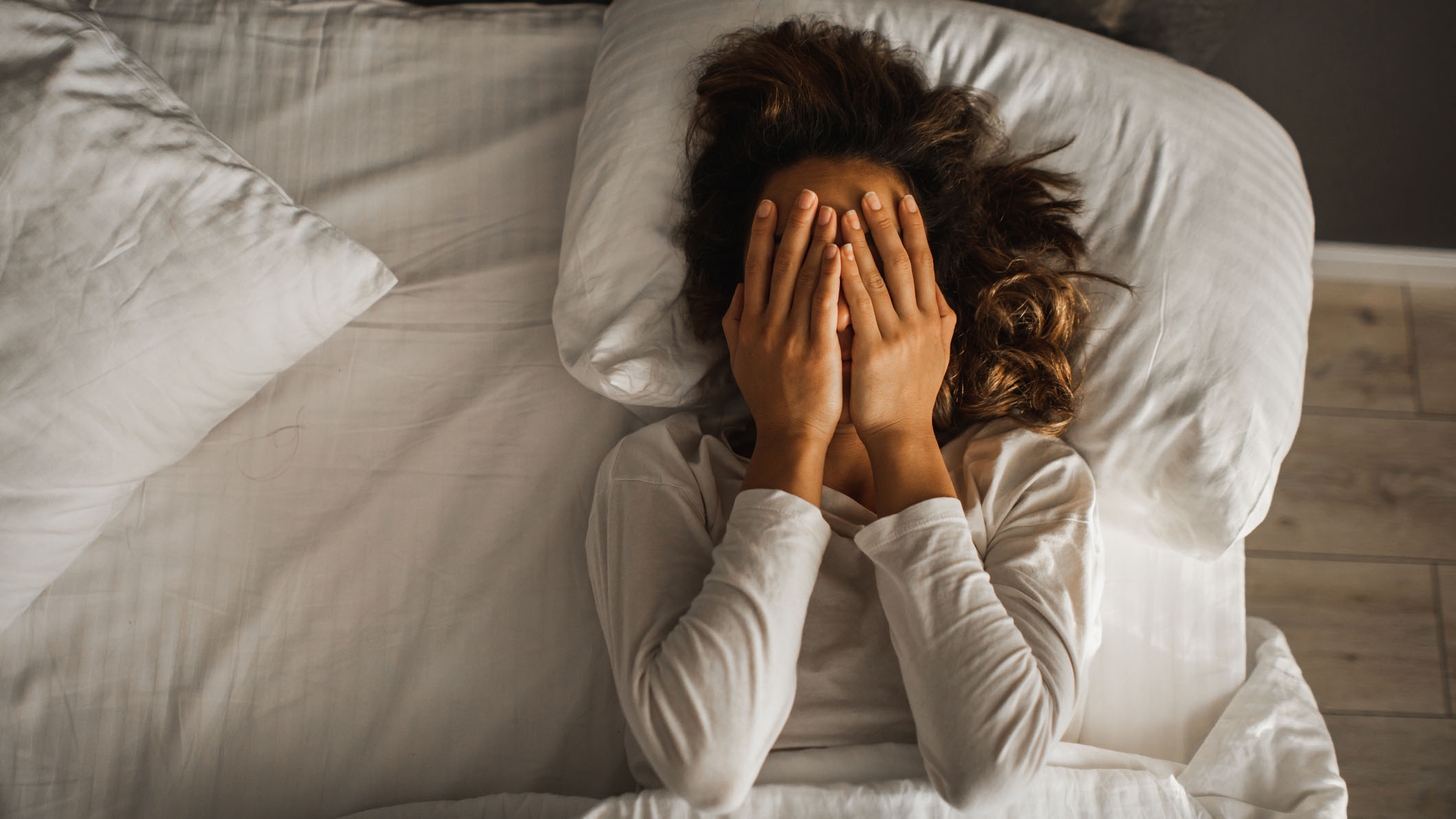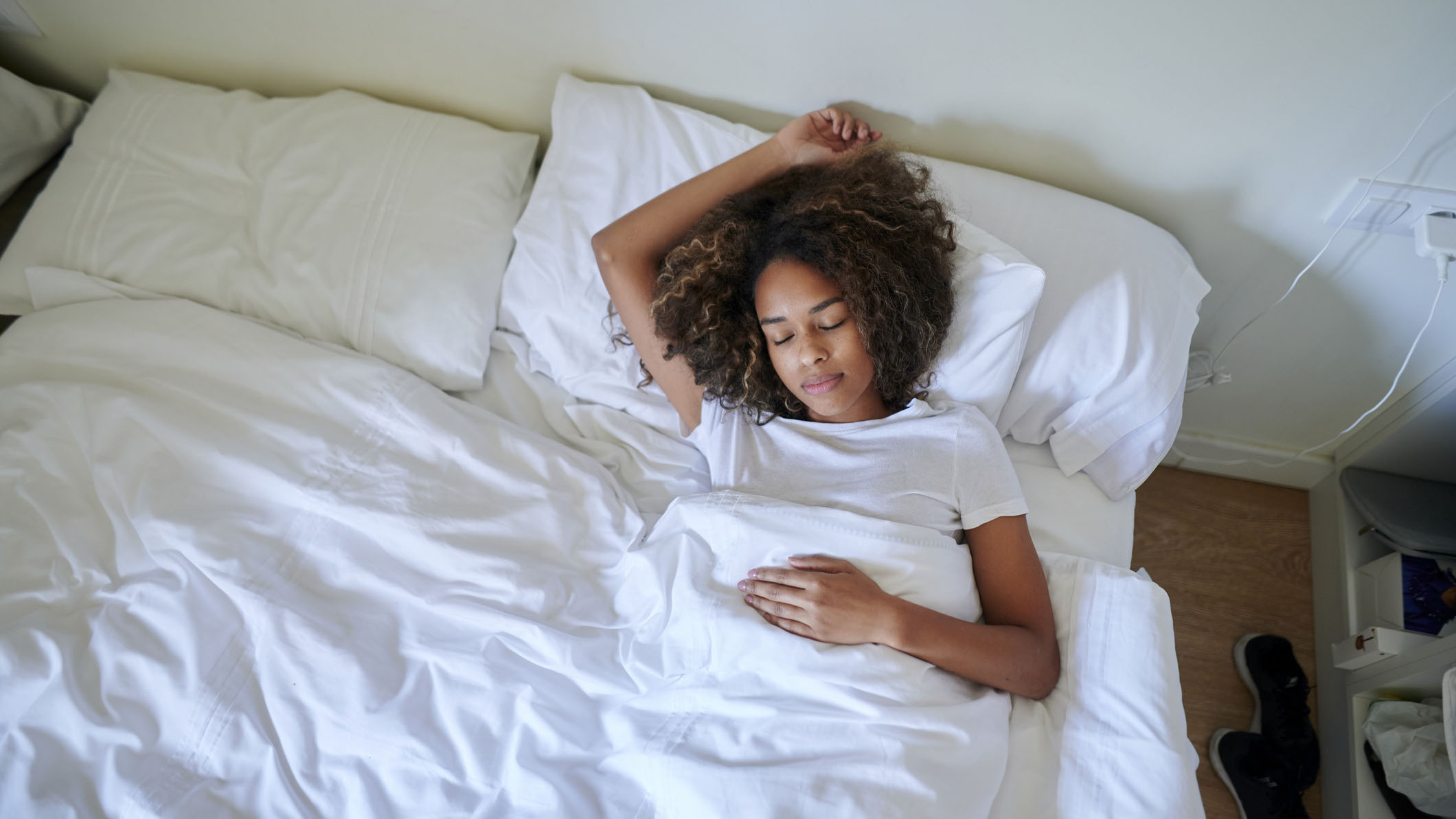If you sleep in this position you're more prone to nightmares, says dreams expert
Dream decoder Theresa Cheung tells us why some sleepers have more nightmares than others

Your sleep position has a huge impact on the quality and duration of your sleep, but did you know that some sleep positions can make you more prone to having nightmares?
A study on the link between sleep position and dreams found that side sleepers who prefer to lie on their left side are more prone to having nightmares than right-side sleepers. But why? And are back and stomach sleepers exempt?
We recently asked dream decoder and best-selling author Theresa Cheung to share her thoughts on the relationship between sleep positions and dreams, and why snoring may not be the only side effect of sleeping on your back.
- Read more: What is sleep paralysis - and is it possible to stop it from happening in the moment?
- Read more: “They are coming for your dreams,” scientists warn as advertisers infiltrate our subconscious
Can sleeping on your left side cause nightmares?
“Potentially,” says Cheung. ”You can dream in any sleeping position but there is a limited amount of self-funded research to suggest that sleeping on your right side results in more cathartic and healing dreams in contrast to left side sleeping.
"Sleeping on your left side, however, can be associated with nightmares because left-side sleeping puts more stress on the heart," continues Cheung. "Whenever there is stress, sleep quality is poor and nightmares are sure to follow.”
Can sleeping on your back cause nightmares?
The dream decoder also points out that, while dream quality differs in left-side and right-side sleepers, back sleepers also suffer from more nightmares than front sleepers. “There is more research to suggest that sleeping on your back triggers nightmares,” Cheung tells us. “While front sleepers are reported to have more empowering dreams.”

Can sleep apnea cause nightmares too?
Cheung believes that nightmares when sleeping on the back could be down to how the sleep position affects our breathing. Studies have shown that breathing issues such as sleep apnea are exacerbated when sleeping on the back, which Cheung explains can lead to bad dreams.
Get instant access to breaking news, the hottest reviews, great deals and helpful tips.
“People who experience nocturnal breathing issues are more likely to jump from deep to light sleep and experience anxiety-themed dreams. To date there isn't enough research to suggest that sleep position can impact dreams, but there is solid research to suggest that breathing issues cause poor quality sleep. Whenever there is poor quality sleep, the chances of nightmares increase.”
Is it possible to sleep without having nightmares?
“If you do suffer from nightmares, changing your sleeping position could influence your dreams, so you may want to experiment,” suggests Cheung. “The best approach is to sleep in a position which is optimal for healthy breathing and that is probably on your right side, which is potentially better for dreaming, but right-side sleeping is not the best if you suffer from heartburn.”
However, nightmares aren’t all down to sleep positions — your sleep environment and bedtime routine are important, too. It can be difficult to know how to stop nightmares. “The crucial factor always when it comes to sleeping is your comfort,” she says. “Indeed, the best way to influence the content of bad dreams is to always start with your sleep hygiene.”
To make sure your sleep habits are healthy, check out our guide to establishing good sleep hygiene, and invest in the best mattress for your body and budget to ensure you're getting the comfort add support you need for deep sleep each night.

Frances Daniels is a PPA-accredited journalist and Sleep Staff Writer at Tom's Guide with an MA in Magazine Journalism from Cardiff University. Her role includes covering mattress and sleep news and writing sleep product reviews and buyer's guides, including our Best Hybrid Mattress 2025 guide. She is interested in the relationship between sleep and health, interviewing an array of experts to create in-depth articles about topics such as nutrition, sleep disorders, sleep hygiene, and mattress care. She is also our specialist on mattress toppers — producing bed topper reviews and taking care of our Best Mattress Toppers 2025 guide — and leads content relating to fiberglass-free beds for a non-toxic sleep. Outside of Tom's Guide, she has written for Ideal Home and Marie Claire.
 Club Benefits
Club Benefits





